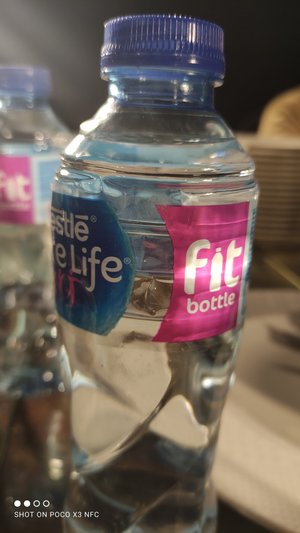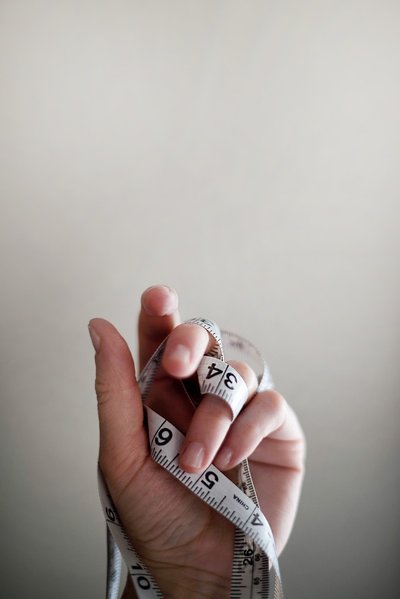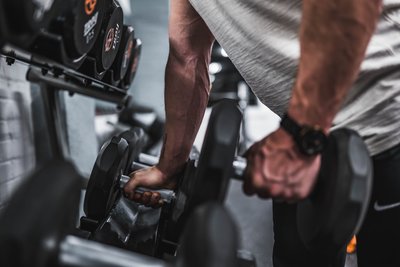
The Hidden Messages We Absorb Daily
Okay, imagine this: You’re at the store, looking for something to drink. You see a sleek, slim bottle of water from Nestle, and it’s labeled "fit." It looks cool, modern, and healthy. But wait… what does "fit" even mean here? Is it about the bottle, or is it hinting at something more? Could this simple design be part of a bigger story about how we see our bodies and what society thinks is "acceptable"?
This isn’t just about a water bottle. It’s about the stories we tell ourselves through the things we buy. It’s about the unspoken rules of what it means to be "fit," "healthy," or "beautiful." And it’s about how these messages, even in small ways, can shape how we feel about ourselves.
In this blog, we’re going to talk about body shaming, fitness myths, and how media and brands like Nestle play a role in all of this. We’ll ask questions like: Is being slim the same as being fit? Do we even need an "ideal" body shape? And how do brands influence the way we see ourselves?
So, grab a drink (from any bottle you like), and let’s break this down together. Because sometimes, the smallest things, like the shape of a water bottle, can make us think about the biggest issues.

What Really Counts as Body Shaming?
Body shaming isn’t just about calling someone "fat" or "skinny." It’s bigger than that. It’s about judging people for things they can’t always control, like their body shape, skin color, hair, or even the way they talk. It’s about saying, "You’re not good enough because you don’t look a certain way." And honestly, it’s exhausting. Why do we do this to each other? Why do we let society tell us what’s "beautiful" or "acceptable"?

The Truth About Fitness: It’s Not What You Think
As you can see in the picture above, Nestle has packaged a slim bottle (competitively priced at a lower rate) and labeled it as "fit." But what does fitness really mean? Is it just about following the latest Instagram trend like #slimtrim? The truth is, the idea of fitness has changed over time and varies across cultures and regions. For example, being overweight to the point where it’s hard to carry your own body can be considered unhealthy and may lead to other diseases. However, that doesn’t mean every person who is larger is automatically unfit. Similarly, being slim doesn’t guarantee fitness either. There’s no direct connection between slimness and being fit—it’s much more complicated than that.

Do We Really Need an 'Ideal' Body Shape?
If you look at historical pictures, you’ll notice that the idea of a "perfect woman’s figure" has never been tied to one specific body shape. Body shaming, however, has become a significant issue, especially for women in places like Pakistan. This problem grew more prominent with the rise of Hollywood and Bollywood, which promoted narrow ideals of beauty, and events like Miss World, which reinforced those standards. Think about it: when media constantly pushes one specific body type as the only definition of beauty, it creates a harmful, almost racist mindset. We’ve seen this clearly with brands like "Fair & Lovely," which literally built its name on the idea that being fair-skinned means being beautiful. After facing global backlash, they rebranded as "Glow & Lovely," but the damage was already done. Their advertisements in Asia, particularly in India and Pakistan, perpetuated racist and body-shaming ideals. This kind of messaging harms people worldwide by reinforcing unrealistic beauty standards. To truly stop body shaming, we need to challenge these harmful narratives in mass media. It’s crucial to recognize that every person, regardless of how they look or how society categorizes them, is beautiful in their own way.

What Does It Really Mean to Be a 'Manly' Man?
Gyms tend to attract more men than women in Pakistan. Many in the younger generation believe that the only way to be fit is to become a #fitnessfreak, equating being muscular with being a "real man." But is it fair to link fitness solely to gyms? Are there no other ways to stay fit? Not everyone has the time or resources to hit the gym every day. To answer these questions, we might need to revisit old fashioned, simpler approaches to fitness. While gyms have their benefits, they also come with drawbacks. Fitness isn’t limited to lifting weights. It can be achieved through walking, staying active in daily life, avoiding smoking, and breaking other unhealthy habits. The key is balance. There’s no need to obsess over one specific way to stay fit. After all, being fit isn’t about a gym membership; it’s about taking care of your body in ways that work for you.

Can Everyone Handle Body Shaming?
The simple answer is "no." Not everyone can handle criticism, and telling someone to "be a man" or that "criticism makes you stronger" doesn’t work for everyone. Linking criticism to character development can backfire, leaving people emotionally broken instead of stronger. Sadly, some people are driven to extreme measures, like suicide, because of the pressure from media and advertisements, like the Nestle bottle I mentioned earlier. These messages can make people feel rejected or unworthy in the world.
I can’t ignore the bottle I saw on my dinner table last night. Even if I personally understand that #slimtrim is considered "fit" in today’s world, it doesn’t mean it won’t hurt someone else’s feelings. Small details like this matter because they shape how we see ourselves and others. If we’re not careful, these messages can lead to harmful outcomes, just like the "Fair & Lovely" case, where brands promoted damaging beauty standards.

Nestle: A Brand I Love to Criticize, But Do I Hate It?
I still remember when Nestle started replacing plastic straws with paper straws on juice boxes. I praised them for this step, even though the paper straws often got soggy and mixed with the drink, making them less practical. A bamboo or edible straw might have been a better option, but I was still glad they took some action. I also admired Nestle for their efforts to reduce water waste by improving irrigation technology in Pakistan. There are plenty of reasons to appreciate Nestle as a company.
However, their recent move of labeling a slim bottle as "fit" feels like it promotes body shaming, and that’s something the company should take seriously. The public today rejects any branding that even slightly aligns with harmful beauty standards pushed by modern media.
Just to be clear, I don’t own any Nestle stocks, nor am I affiliated with their investors. I’m not planning to buy their stocks in the future either. Personally, I believe the world was better off before water pollution became widespread and bottled water became the norm. I even think there’s a connection between water pollution and the rise of bottled water companies, though these are just my personal thoughts, and you don’t have to agree with them. That said, I do respect these companies for providing clean water in areas where it’s scarce or unavailable.

What Am I Doing About It? (And What Can You Do Too?)
I’ve shared my thoughts here, and I’ll continue to do my part to spread this message to more people, and hopefully, to Nestle as well. If you found this article meaningful, I’d love your help in sharing it with others. Every small step counts, and together, we can make a difference. Please leave your thoughts in the comments. I’m eager to hear what you think about body shaming and how we can change these harmful norms.

Affiliate Disclosure
Join Binance through THIS LINK for 10% off trading fees! Let's save together!

Upbringing the judgemental society, are we valuable? If we are being liked, what's the reason; beauty, grace or glamour? Clearly beauty of the heart and brain is not significant. Whoever introduced this trend, it's becoming toxic now. Brands are selling their product as they knew silly people will rush for them. Psychological sickness! no one is glad with the complexion, or physique they are having. The celebrities who advertise this illogical trend only credit balanced diet and healthy lifestyle for the glamour they are having. So for whom these products are formulated?
To be honest such brands like Nestle don't have the right to humiliate people in such a way. Recently a friend of mine was giving me the reference of some Hollywood actress for their curvy body, I was silent for a moment. As you have pointed toward the gym and female attraction, the same points are being tagged for the male attraction too. Is this all shameful?
Much more related thoughts which all are ending in the expectation that we would halt all this culture. Now about body shaming, I remember multiple famous people saying we adopted workout as we wanted to look slim on the demands of people. Demand!, this means their own body demands is not so meaningful. I support healthy body but not the #slimtrim. These body transformations are nothing when you are not able to withstand a minor infection.
There is no doubt that your comment is on points but here I would like to add some of my more ideas to it.
This also applies to FLAT 70% off sales. Specially women buy clothes from Gul Ahmed, Bacha Party, Zara and other on sale, thinking that they will look like elite class women. I see no point in buying a branded cloth to look like elite and still the elites laughs at that person since it would be 1 to 3 years old fashion. If someone want to buy a branded cloth buy it in first release or don't buy at 70% off to become a double idiot. If they say that branded clothes are of good quality then there are many shops with good quality clothes but they are selling quality not logos. I don't like people running after logos. Although I like tesla and lambo as brands which I regret even liking them since I know nothing about them but only it's an effect of singers using them in songs.
One time I saw 2 12 year old girls talking about they wanna wear a dress like xyz actress on there wedding. First of all, there age is the matter. Secondly, people are not thinking about personal characteristics but running after money. I believe that people can be happy in minimum expenses and also the same people can not be happy in luxury life style. It's all just in ideologies.
Our culture was changed by writers in past and we are writers too. Maybe from our generation or the next one's someone will read these things someday and continue the chain of ideological advancement of mankind specially in Pakistan.
Your content has been voted as a part of Encouragement program. Keep up the good work!
Use Ecency daily to boost your growth on platform!
Support Ecency
Vote for new Proposal
Delegate HP and earn more
Body shaming is a very common thing in South Asia as well as I know. I don't like it but I can't stop it also because it's impossible to change everyone's thoughts about it.
"Fair and lovely" was rebranded as "glow and lovely" but they are still doing the same thing which they used. They just changed the name, not their thoughts.
At the current time, Many people(not everyone) think that going to the gym gives them a classy vibe and to upload pictures on social media.
The least we can do is not make fun of someone's looks.
As my sensei said, One step at a time.
Boys going to the gym not to get fit but only to follow the trend is the same as girls following the #slimtrim trend on Instagram.
The rewards earned on this comment will go directly to the person sharing the post on Twitter as long as they are registered with @poshtoken. Sign up at https://hiveposh.com.
Discord Server.This post has been manually curated by @bhattg from Indiaunited community. Join us on our
Do you know that you can earn a passive income by delegating to @indiaunited. We share 100 % of the curation rewards with the delegators.
Here are some handy links for delegations: 100HP, 250HP, 500HP, 1000HP.
Read our latest announcement post to get more information.
Please contribute to the community by upvoting this comment and posts made by @indiaunited.
Thanks. I really appreciate it!
Your content has been voted as a part of Encouragement program. Keep up the good work!
Use Ecency daily to boost your growth on platform!
Support Ecency
Vote for new Proposal
Delegate HP and earn more